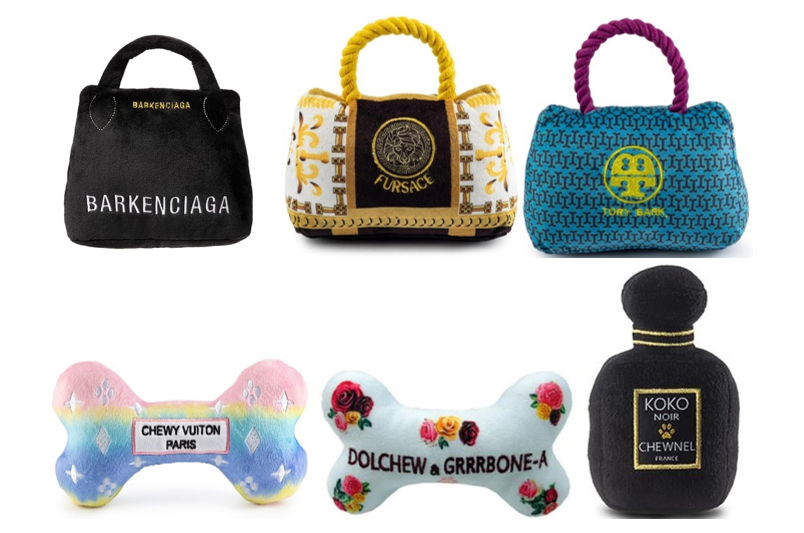What’s with the proliferation of cringey dog chew toys imitating famous products and packaging? Perhaps that’s a question better put to owners of handbag dogs. If you’re scratching your head with your hind leg wondering what we’re on about, it’s this:


I’m not sure what’s more offensive: the flagrant IP misuse or the fact that someone thought “Dolchew & Grrrbon-A” wasn’t an impermissible stretch.
Why are these items allowed to circulate? They’re plainly unauthorised imitations of the get-up of well-known brands which in many cases are still protected by copyright. OK, trade mark infringement may not be the strongest claim, but for brand owners with broad or defensive trade mark protection, an infringement action would still be worth a shot. Trade mark owners overseas could enforce their rights based on tarnishment and brand dilution. These actions don’t carry the same burdens attaching to our reputation-based actions of passing off and misleading or deceptive conduct. Specifically, they don’t require proof of actual confusion or loss.
The latest arffender (I had to go there) is Bad Spaniels:

The old no. 2 on the Tennessee carpet. Gold!!
If I were to guess, I’d say that the manufacturers of these toys mistakenly believe one or more of the following false assumptions.
False assumption 1: The toy designs don’t reproduce a substantial part of the original artistic works.
Under Australian law, most of these toys arguably would infringe copyright by copying the selection and arrangement of features comprising the original work.
False assumption 2: You can’t infringe someone’s IP rights if you’re in a different product market.
If the brand owner holds trade mark registrations covering pet products as part of their merchandising program (which many do), the above uses would infringe. And copyright law knows no product category bounds.
False assumption 3: Well-known brand owners wouldn’t bother coming after dog toy manufacturers.
Not true. In the US, Louis Vuitton sued Haute Diggity Dog, the manufacturer of these dog toys:

And Jack Daniel’s is currently suing VIP Products LLC (the maker of the Bad Spaniels toy) in the US. The case is going all the way to the top, with SCOTUS due to review the decision of the US District Court for the Ninth Circuit which went VIP Products’ way.
False assumption 4: Joke = parody. Parody = defence.
This view draws support from the US Court of Appeals for the Fourth Circuit’s decision in Chewy Vuitton. In that case, the toy was found to qualify as parody which did not infringe or dilute the LOUIS VUITTON trade mark. In Bad Spaniels, the 9th Circuit Court effectively applied Chewy Vuitton, holding that the use of humour rendered the toy an “expressive work” warranting First Amendment protection. Oy vey.
In any case, SCOTUS is set to review that finding. We can expect a decision within the coming months.
Here in Australia, the idea that humour gets you off the hook is a misconception. Our parody defence to copyright infringement is extremely limited. It’s not designed to capture eye-roll-inducing jokes that make no point. Dad jokes do not a defence make. And there’s no parody exception to trade mark infringement.
What now?
Until there’s a critical mass of enforcement proceedings in major markets, it seems that the market for dog chew toys will remain a curious whack-a-mole.
And while I’m across the irony of deploying terrible jokes to deride IP infringements posing as parodies, I’m still going to do it. For now, infringers have the upper paw.






